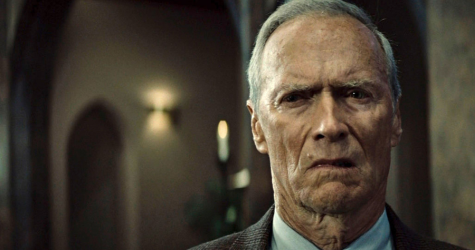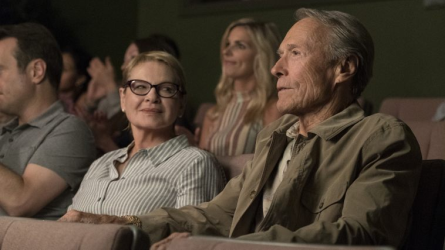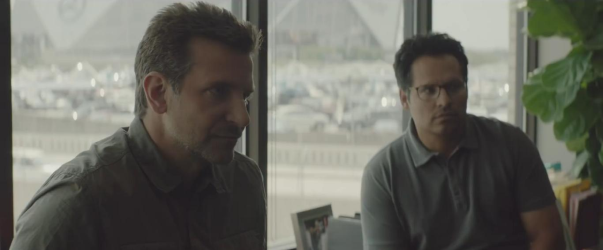One could uncharitably observe that Clint Eastwood’s latest movie has high-60s scores on RT—the cinematic equivalent of a “golf clap”—but as I like to ask my parents, “Well, hey, where’s your movie?” I mean, the guy is 88 1/2 (and you get to start counting half-years again at that age) and he still makes better movies than most. I would say it’s in my top 10 of new American films for the year but that’s a kind of backhanded compliment, since I sure didn’t see a lot of new American films.

This is the kind of guy you don’t give a backhanded compliment to in person.
And what’s interesting and really good about this movie is that Clint is playing a character much like his others, but taking it in a new direction. Once again, Clint plays an old man with a lot of regrets. In this case, a man named Earl, who is a kind of bon vivant man-about-town winning all kinds of awards for how awesome his flowers are—yes, you read that right—while giving his family serious short-shrift. After an opening set-up where Earl doesn’t show up for the wedding of his daughter (played by real daughter Allison Eastwood), flash-forward 12 years to the now 90-year-old gardener losing his flower farm (to Internet-savvy flower providers) and having nowhere to go. With his granddaughter (presumably from an earlier marriage of his daughter’s—lotta missing men in this movie) now the one about to get married.
Well, he ends up muling because what could be less suspicious than a 90-year-old hauling pecans? He starts hesitantly, of course, but when he gets the money from these runs, things start to turn around for him. He gets a new truck. He’s maybe going to stop there but then he does another run and gets his farm back. Then it looks like he’s really going to stop, but there’s a fire at the VFW and where will all the vets go?

Father and daughter.
He starts showing up for family events, even covers his granddaughter’s cosmetology school tuition. And he has a kind of civilizing effect on everyone around him: The thuggish drug-dealers start liking him because, even though he sort of meanders on his runs (stopping for pulled pork and not one but two hookers at a time), he tends to treat everyone like a human being. He isn’t—as most people in this modern world seem to be—fragile and pissy. So he’s quick to forgive.
Some of the classic I’m-A-Guy-From-The-’50s-So-I-Don’t-Know-The-PC-rules show up here, a la Gran Torino, though this isn’t as great as that movie. And if you remember how lukewarmly that film was received, except in this household and especially by The Flower, whose favorite movie it was for years, you realize that Eastwood’s films tend to age well. This one, I think, will, too: The direction struck me as a little slack in the early scenes, but the movie closes really strong with a kind of unexpected redemption for an Eastwood character.
The last act is altogether more emotional than anything we expected. (The Boy and I. The Flower was hanging out with her godmother.)

“I’m going to love your death scene…wait, what?”
A few things didn’t work for me. The early direction, as mentioned, though I may revise that. And the flashback does not actually do much to make Clint seem twelve years younger. He seems to be muttering and frail in those early scenes, where later scenes he comes off a lot more robust. A lot of that, I’m sure was deliberate: As he achieves what he thinks is success, he becomes more confident and…uh…audible. But some of it felt off to me.
Overall, though, it’s one of those movies you like more the more you think about it. And again, the ending is unexpected and kind of nice in its own way. Check it out! I know I (probably) will, because The Flower will want to see it.

Bradley Cooper’s lookin’ a little ragged. Michael Pena doesn’t seem to age.
